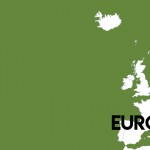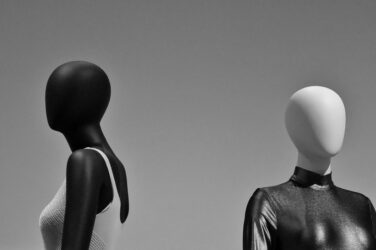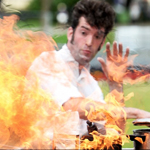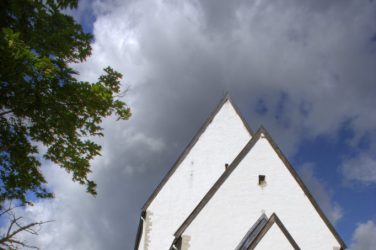In November 1989, the Berlin wall fell, paving the way towards German reunification. 30 years later, many differences between East and West Germany remain. The united country, for many, continues to be rife with disunity. To commemorate this historic date, three of E&M‘s editors recount their own experiences of what it means to be German, then and now.
Isabell
I grew up in Bavaria. For me, that always meant that I grew up in the Southeast of Germany. So, when I would hear people talking about East Germany, I felt just as included as I would when hearing about South Germany. My hometown Trostberg is clearly situated in the East. So it would not make any sense to refer to me as a West-German. At least to a ten year old who had not yet learnt about 20th century German history, it did not. And as my family had no personal relations to East Germany, there was also no talk of the two Germanies or unification at home. All I knew at this stage was the Germany I grew up in, with the borders I saw on TV in the news or the weather forecast.
The unification was and still is history.
Only a couple of years later, thanks to my history lessons, did I understand what being called a West-German actually meant and that it went far beyond cardinal directions. As I was born after 1989 though, the unification was and still is history. Even in my history lessons, I did not quite grasp that it was so little time ago and that every single adult around me grew up with a different understanding of Germany than I did.
Since my first history lessons on German unification, I’ve of course acquired much more knowledge. I have visited the region of former East Germany and have met people from there. But among my peers, it has never been a big topic other than for history class. I still hold the “naïve” and probably privileged attitude that there is no difference between people from the West and the East; that there is no division and that it definitely does not characterise a person. No matter whether someone comes from Leipzig or Munich, they are German. I do not see two parts and also do not see two histories. My encounters with peers who grew up in former East Germany taught me that it is a much bigger topic for them, which is why I called my attitude privileged and naïve. But I cannot help to think it is a good approach. It does not help anyone to hold on to differences because it will always keep us apart. Therefore, I will keep my “naïve” view.

Friederike
I was born by the Baltic Sea, in a town called Greifswald, two years before the fall of the wall. Greifswald is situated right outside a beautiful peninsula called Usedom, that is half Polish, half German. My parents met at the university in Greifswald. My father is from Usedom, in Mecklenburg-Vorpommern, and my mother from a little town between Magdeburg and Berlin, in the heart of Sachsen-Anhalt. In 1991 we packed up and moved to the West of Germany, to a tiny village in the very North of Bavaria. Dad had found a good job there, and so our little family left the beautiful seaside and started a new life in Bavaria (read: technically, we are considered economic refugees.)
I was too young to realise the repercussions of this move, from the East to the West, shortly after the wall came down. All I know now, in hindsight, is that my mother suffered for years. She was unhappy that she could not work, because, first of all, her diploma was not recognised in the West, and secondly, I did not have a place in a kindergarten. She therefore had to stay home and take care of me — something she never had to do before. My father worked incredibly hard to provide a house, food and fun. However, it meant that my mother, at least at the beginning, was without a purpose of her own. She could not understand people’s thick Bavarian accent, she missed the sea breeze, she was bored, and probably very unhappy.
I did feel the divide, even if just slightly. We were foreigners in a newly reunited country.
Although I lived in Bavaria too, I had a different experience than Isabell growing up. I did feel the divide, even if just slightly. We were foreigners in a newly reunited country. Whenever I went to the local bakery on my own, I was questioned like I was charged with criminal offenses: “Where are you from? Why are you here? Why aren’t you going to church? Why do you have two cars? What did your parents do in the East?” – and not only did I not want to answer these strangers interrogating me, I also did not know how. I never felt different or as an outsider, but I was often considered as one or questioned like one by others. Growing up, this was never an issue for me, I just sometimes got irritated. I never felt the need to hide my roots, I was never embarrassed — why should I be? My brother and I grew up speaking without an accent (which is very common in Mecklenburg-Vorpommern, the German there is pretty ‘accent-free’) so people could not pinpoint where we were from, they just always knew we were not Bavarians.

Later in life, and still today, I often have to listen to colleagues, friends or strangers making fun of people from the East of Germany. Imitating their accent (badly) or just joking about the stereotypes. A lot of it happens in good spirit and I don’t mind, but some of it transpired a kind of arrogance and entitlement that never sat well with me. And although I am far from being patriotic, I am also far from being ashamed about where I am from. When, in these situations, I would mention that I am from the East, the look of surprise and a half apology would almost always instantly be followed by: “What?! I would have never known! You don’t seem like you are?!” And honestly, what the fuck is that supposed to mean? 30 years on, and we are still looking for differences rather than what unites us.
On the other hand, I have also been in situations growing up in the West of Germany where I was chatting to and getting along with strangers whilst waiting in line at a supermarket, a stranger on the train or a new colleague, only for them to pause, tilt their head and quietly whisper: “Hey, where are you from? Like, where were you born?” And as I mention Greifswald, their eyes get big and happy and they smile and say: “I knew it. I felt it. You’re an East German. That’s why we immediately got along.” And I love these little moments as much as I find them strange.
Jurek
The time just after reunification must have been pretty cool. On a regular Friday night in the Leipzig of 1991, my mother and my father would enter the basement of some squat. Slowly, a scent of party leftovers would rise to their noses, while the ricochet of rough beats and ecstatic screams would echo through a smokey, grey staircase. The venue they were entering would be just another pop-up club, hosting just another party that would last for days.
My parents met soon after reunification, when my father came to Leipzig for the first time in his life. He had grown up in Bavaria, and wanted to see the other side of the wall with his own eyes. In Leipzig, he found a society in a state of tumult, full of hopes, fears, rosy utopias and disturbing nihilism. And he found my mum, the daughter of a high-ranking GDR party official, a woman who did not greet reunification with joy, but with suspicion and resentment. When most people joined pro-reunification demonstrations, she was at the forefront at the anti-nationalist protests of the marxist-leninist youth.
The power vacuum left behind by the disappearance of the East German state apparatus provided space for countless endeavours, experiments and indulgences.
Young people had a great time during the reunification years. The power vacuum left behind by the disappearance of the East German state apparatus provided space for countless endeavours, experiments and indulgences. My father was amazed at the lifestyle of young East Germans: when they wanted to see their friends, they would ring their doors, hang out with them, party, drink, smoke, hook up, stay overnight in shabby student flats, and just continue partying the next morning. A three-day party was not unusual.

Yet, this enthusiastic atmosphere was overshadowed by the crushing economic decline of East Germany, a trauma that would imprint itself in the souls of many East Germans for years to come. It was overshadowed by a massive surge in right-wing extremism, peaking in the pogrom on Vietnamese guest workers in Rostock-Lichtenhagen in August 1992. And it was overshadowed by waves of emigration of Easterners to West Germany, which strangled the already struggling economy in the East.
That is why my mother followed my father to Nuremberg very soon. And then to the Swabian countryside. This was where the jobs were, where they could found a family. And still, with three little sons on board, they eventually moved back to Leipzig in 2002. At that time, when I started going to primary school, East Germany may have been at its lowest point. Economic and demographic decline had been so extreme that Leipzig, a city of once 700,000 inhabitants, had shrunk to a population of 430,000.
I grew up to be a very political teenager. Although I was well aware of the historical legacy of my surroundings, it was not until I left Leipzig in 2015 that I actually realised something. Not only did my parents grew up in different societies, I grew up in a different society than my West German coursemates at university. A society with a different collective memory, different experiences and different values. A society shaped by a state that did not exist anymore, a land far away, my mother’s home country, a place I could never visit nor comprehend.

Still, that society buried in history was all present. Especially in familial upbringing, for family life only slowly adapts to political change. If you have free time, spend it outside. If you want a snack, eat an apple. If you get beat up at school, well then maybe you did something wrong. Don’t show off, stay modest. Work hard and contribute. Don’t trust others, they’ll just use you. These are just some basic wisdoms of a typical East German household.
These norms and values still feed into a dynamic of Eastern submissiveness and Western entitlement. My West German friends are on average better at speaking their minds, they have more faith in their abilities, they can envision themselves in top positions. My East German friends are incredibly intellectual people. They are talented and work hard, they study medicine, psychology, politics, economics, law. But statistically speaking, their chances to end up as judges, university deans, or CEOs continue to be much lower than those of comparable West German students.
If I had to say in one sentence what I think the great divide is about today, I would say that East Germans simply remain unemancipated. Economically, politically, culturally. Being a successful citizen in a liberal democracy requires a set of soft skills that is not being taught well enough in the East. Maybe there needs to be better political education. Maybe, however, East Germans will only be able to emancipate themselves once they accept that they are different and make that difference political… a typical topic for postcolonial studies.
The divide matters more than ever. A true test for the unified federal republic.
When my parents were partying for days in post-reunification Leipzig, they would never have thought that the Berlin Wall would survive as a “wall in the minds” for decades to come. And yet, here we are, 30 years later: never has the East German electorate voted so differently than the West German electorate. The divide matters more than ever. A true test for the unified federal republic.
Cover photo: betexion (Pixabay), Pixabay Licence










